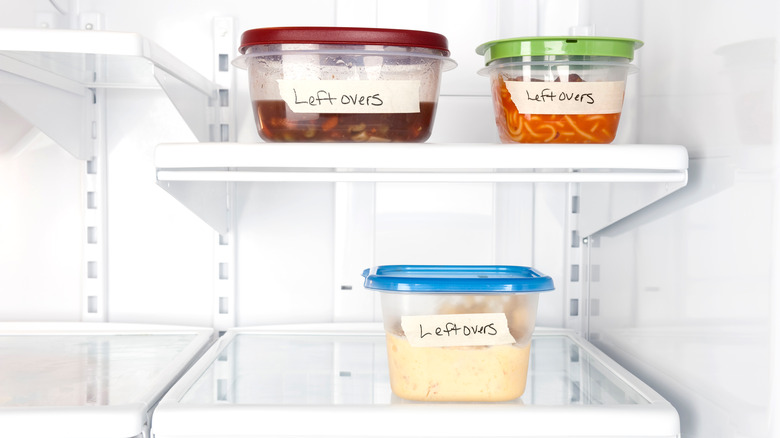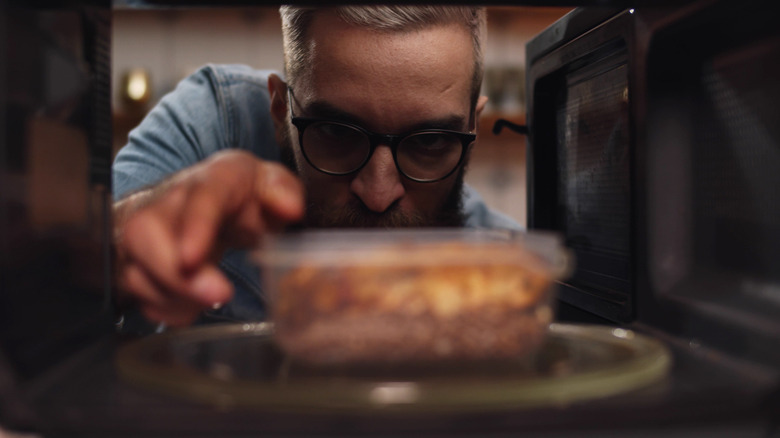The Scientific Phenomenon That's Been Ruining Your Leftovers
Leftovers are a major contributor to the problem of food waste that is straining both our economic and environmental resources. Leftovers always seem great at first — a convenient and time-saving solution to future meals, but they rarely fulfill that potential. Scientific American cites research showing that even when people do follow through with their plan to reheat and eat leftover meals, they don't finish them, leaving a substantial portion of leftover leftovers that inevitably make their way to the trash.
The thing is, eating leftover food is seldom all that appealing. Even setting aside certain leftovers that are dangerous to eat due to the presence of bacteria and other health concerns, old meals from the fridge never seem to taste as good as they did the first time around, and sometimes, they taste downright foul. This is an especially common issue if your leftovers include some kind of meat, particularly poultry.
Something happens when you reheat cold, cooked chicken. You've probably experienced it yourself. It's hard to describe the flavor transformation. Some would say it's stale, rancid, or maybe just off, but Serious Eats reveals that there's actually a scientific phenomenon at play here called "warmed-over flavor."
What causes warmed-over flavor?
According to Serious Eats, warmed-over flavor (WOF) is caused by the deterioration of polyunsaturated fatty acids (PUFAs) within the cell membranes of meat, poultry, and fish. During the cooking process, the cells within meat start to break down, allowing fat to permeate the muscle for tender, juicy results. However, the breakdown of cells also releases iron molecules, which react with oxygen, and the aforementioned PUFAs.
This creates free radicals, and unstable atoms that damage cells as a part of illness and aging, according to Medical News Today. They transform the fatty acids in meat, giving them an appetizing aroma, though Serious Eats emphasizes that the meat is still safe to eat at this point. If it were spoiled meat, it would have a harsh sour smell. According to Serious Eats, WOF is worst in poultry and fish because they have higher concentrations of PUFAs than beef or pork.
To reduce WOF in cold-cut chicken and turkey, many companies process the meat with phosphates and vacuum-pack it while still hot. The phosphates neutralize the free iron molecules and a vacuum seal keeps out oxygen to prevent a chemical reaction. There's only so much you can do to prevent WOF in a home kitchen, but take a cue from the pros and try to limit the oxygen exposure your meat gets from the moment it comes off the heat. As soon as you've served everyone, pack your leftovers in airtight, heat-resistant containers.

